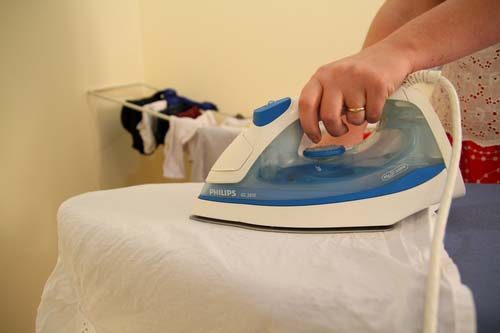
Two European countries, Bosnia and Macedonia, are set to send their nationals to work as housemaids in Qatar, the Ministry of Interior has announced.
When first suggested, the introduction of European maids caused consternation among some nationals, with some quoted in local newspapers as saying they were worried that “beautiful” Western housemaids might “charm away” their husbands:
“Young Qatari wives are particularly skeptical and say they don’t want beautiful European women in their homes as they fear they could ‘charm away’ their husbands,” local Arabic daily Al Sharq reported.
They argue that already there have been cases of good-looking Asian maids having ‘tempted husbands away’ in many a family and destroyed homes…”
Three other countries – Bangladesh, Cambodia and Vietnam – have also just agreed to a deal to send unskilled domestic staff to work here.
The government is hoping that the new agreements will increase the availability of domestic workers, a need driven in part by Qatar’s booming population and economy, and in part by increasing demand for better working conditions among nations it currently hires maids from.
Earlier this month, the owner of a manpower agency suggested that Qatar was having trouble expanding its maid recruitment into other countries because of a reluctance amongst sponsors to hire them.
Demands
Up until this week, only women from the Phillippines, Indonesia, Sri Lanka, Ethiopia and Nepal could work as housemaids in Qatar.
The Qatari government has been in lengthy discussions and negotiations with nine other countries to supply domestic workers, an idea which was first floated in December 2011.
At that stage, talks were also underway with Armenia, Tanzania, Kenya, Morocco and Sudan, but agreements haven’t yet been reached with these countries.
The country’s drive to meet increased demand for household staff has not been without hitches, largely due to countries trying to negotiate higher wages and better terms and conditions for their nationals.
Maids’ rights
In December last year, the government introduced an unofficial ban on new working visas for Filipinas entering Qatar. Local manpower agencies said the move was in response to attempts by the Philippines to reinforce a minimum wage of $400 (QR1460) a month, compared to average pay in Qatar of around $247 (QR900).
Nepal only lifted a ban on its nationals working as housemaids in Qatar last year, after the government agreed that certain terms and conditions being met, including a guaranteed month off after a year’s work, life insurance coverage and the opening of a bank account in the maid’s name.
Also last year, Nepal set an age bar for women seeking work in Gulf countries, citing widespread reports of sexual and psychological abuse. Nepalese women under 30 are no longer allowed to work in Qatar, Saudi Arabia, Kuwait and the UAE.
And in January, Indonesia temporarily suspended recruitment of domestic workers to Qatar, saying it could not afford to help the increasing number of runaway maids seeking shelter at its embassy.
Manpower agencies in Qatar will be able to apply to recruit staff from all five new countries from next week.
The countries have also agreed to supply skilled workers via official agencies.
Thoughts?
Credit: Photo by Teilhard Scott







